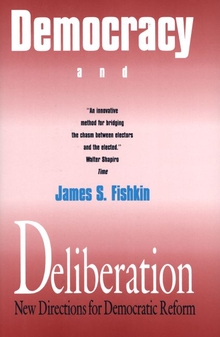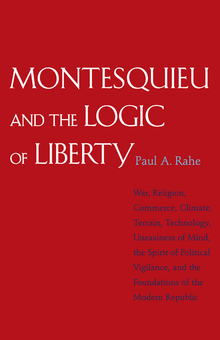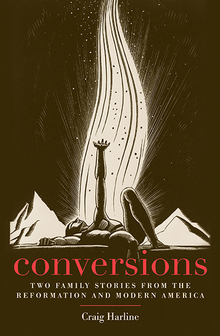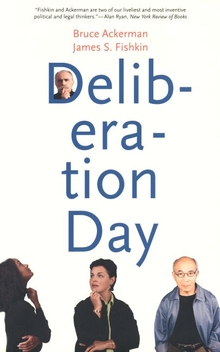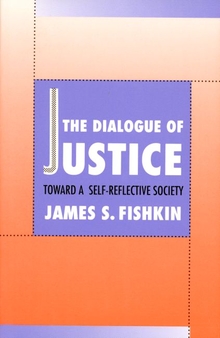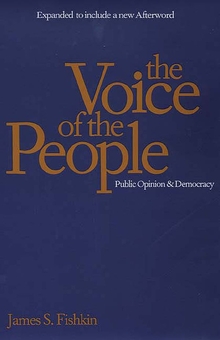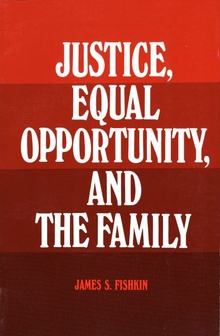Democracy and Deliberation
WARNING
You are viewing an older version of the Yalebooks website. Please visit out new website with more updated information and a better user experience: https://www.yalebooks.com
New Directions for Democratic Reform
James S. Fishkin
This book proposes a new kind of democracy for the modern era, one that not only gives citizens more power but also allows them more opportunities to exercise this power thoughtfully. James S. Fishkin here suggests an innovative solution to the problem of inadequate deliberation, in particular within our presidential nomination system. His reform involves a well-publicized national caucus in which a representative sample of American citizens would interact directly with presidential contenders in order to reflect and vote on the issues and candidates.
In adapting democracy to the large scale nation state, says Fishkin, Americans have previously had two choices. They could participate directly through primaries and referenda or they could depend on elite groups—such as party conventions and legislatures—to represent them. The first choice offers political equality but little chance for deliberation; the second offers the participants an opportunity to deliberate but provides less political equality for the electorate.
The national caucus that Fishkin proposes—an example of what he calls a “deliberative opinion poll”—combines deliberation with political equality and reveals what the public would think if it had better conditions and information with which to explore and define the issues with the candidates. Arguing persuasively for the usefulness of deliberative opinion polls, Fishkin places them within the history of democratic theory and practice, exploring models of democracy ranging form ancient Athens and the debates of the American founders to contemporary transitions toward democracy in Eastern Europe.
"Fishkin makes an important, original proposal to reform the U. S. presidential nomination process. He supports the proposal with a concise, intelligent discussion of democratic theory, emphasizing the importance of genuine deliberation versus transient, media-generated public opinion and defending a Madisonian, representative form of democracy against the current worldwide trend to a direct-majoritarian form. Highly recommended for all American citizens and for the use in university classrooms."—Choice
"A telling critique of political polling. . . . Bold."—Walter Shapiro, Time
"As the 1992 race for the White House approaches, the odor of the shallow, manipulative, bias-laden politics of 1988 still lingers in the nostrils of many voters. But there appears to be a new, air-freshening approach to the upcoming marathon. This clean-air act for the 1992 presidential sweepstakes is called the 'National Issues Convention,' a creation of Dr. James Fishkin, political scientist and chairman of the government department at the University of Texas. If it goes as planned, it could be the most objective, and issue-oriented, convention for both Democrats and Republicans."—Robert A. Jordan, Boston Globe
"James S. Fishkin has come up with a proposal that some political analysts say could lead to major reform in the Presidential campaign process."—Karen J. Winkler, Chronicle of Higher Education
"Americans are prone to think that they have to choose between representative government and direct democracy. We forget that there is another option: deliberative democracy. The fact of the matter is that we have always had both a representative government and a direct democracy. Yet neither works well without deliberation. Deliberation is needed in order for the public to define the public's interests, a definition that gives direction to government. Deliberation is also needed to keep the referenda that direct democracy encourages, from turning into a collective knee jerk. At a time when citizens are eager to see fundamental reforms in the political system, Professor Fishkin's book provides a much needed explanation of the way that deliberation makes democracy a self-correcting form of government."—David Mathews, President, Kettering Foundation
"Democracy and Deliberation makes worthwhile reading for anyone concerned with the ills of our political system."—Wilson Quarterly
"An intriguing and important idea. . . . [A] provocative book."—Richard Morin, The Washington Post
Publication Date: September 10, 1993

